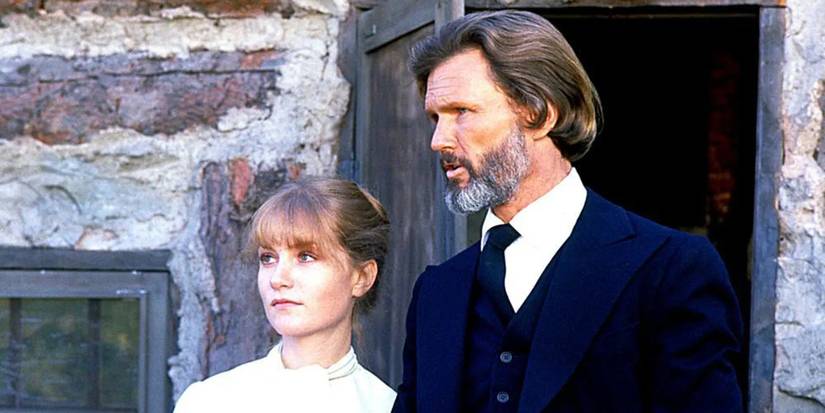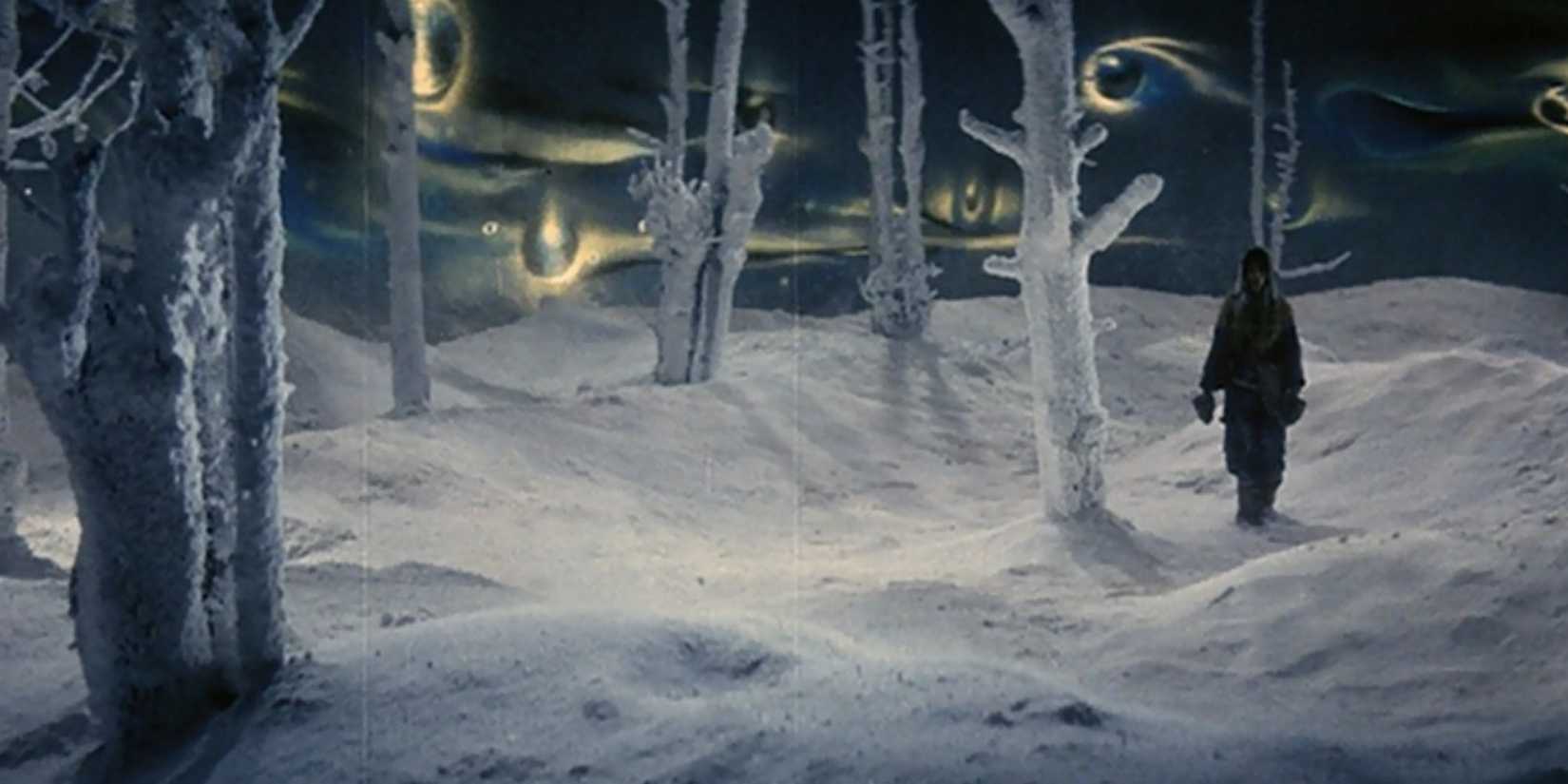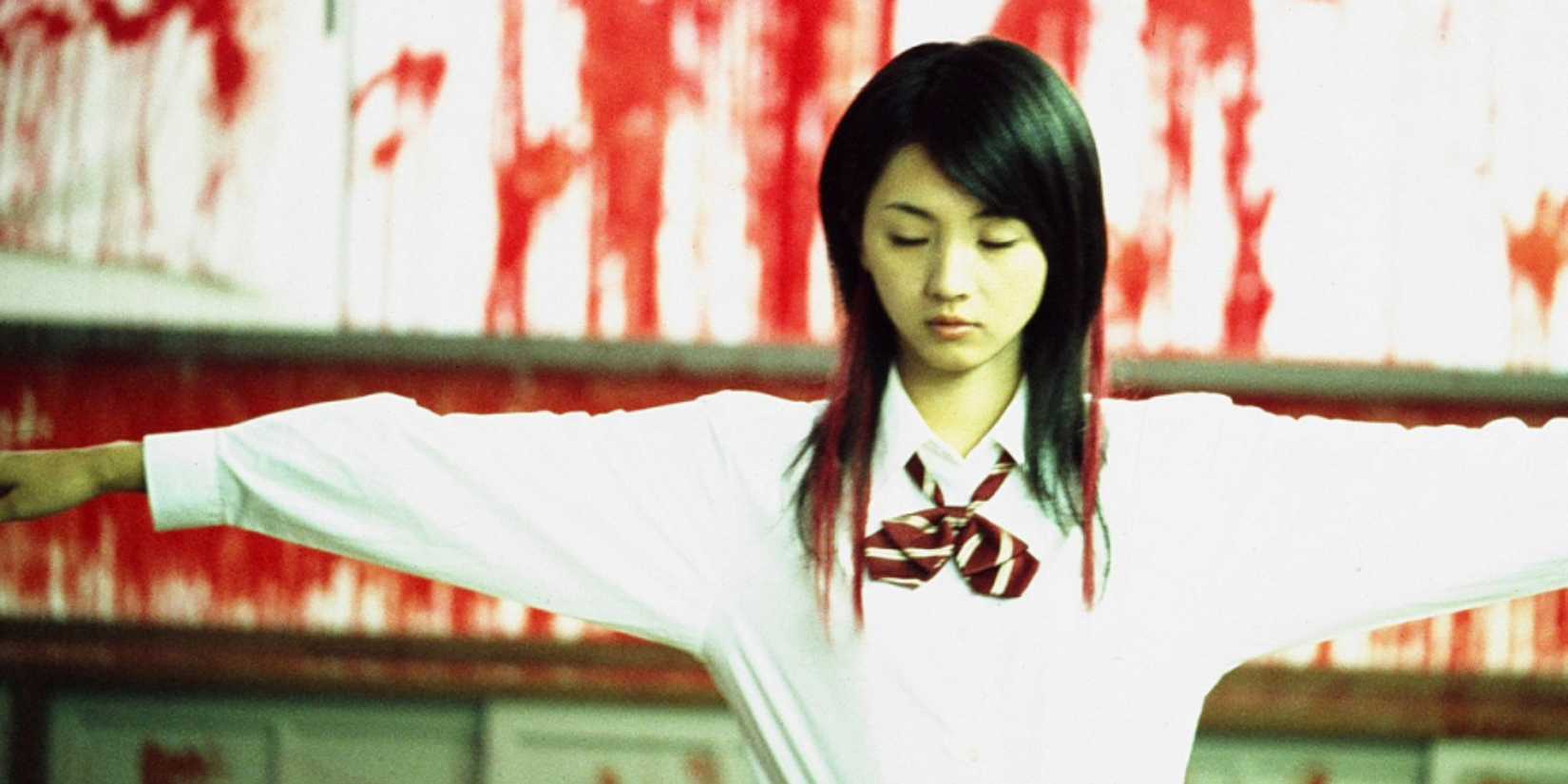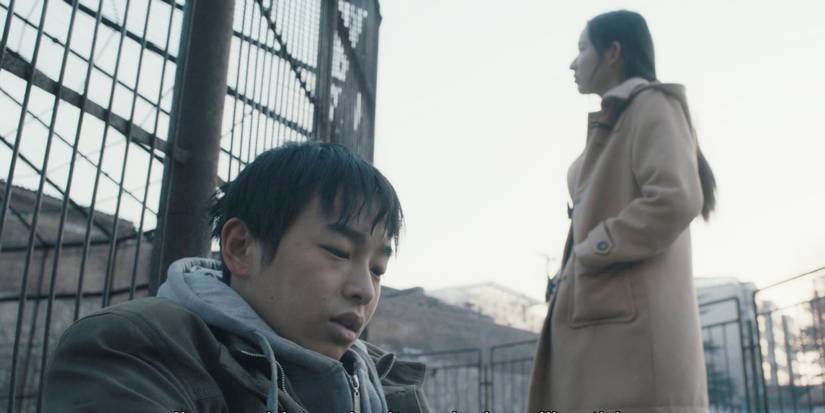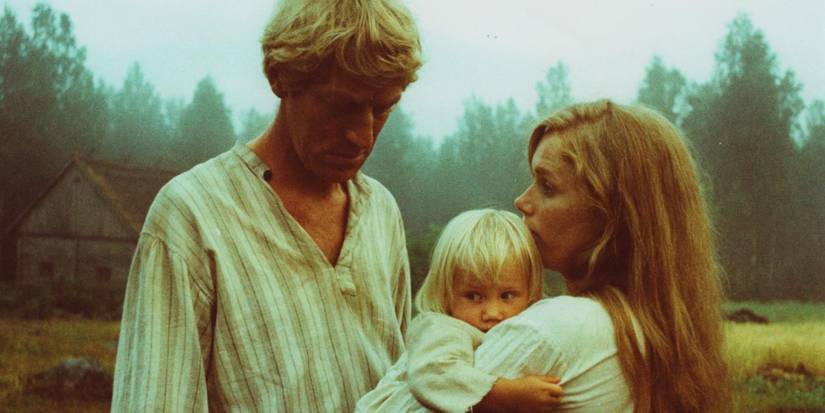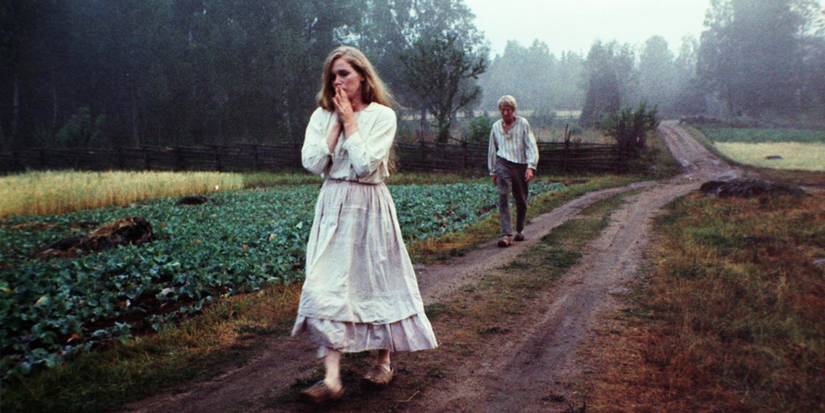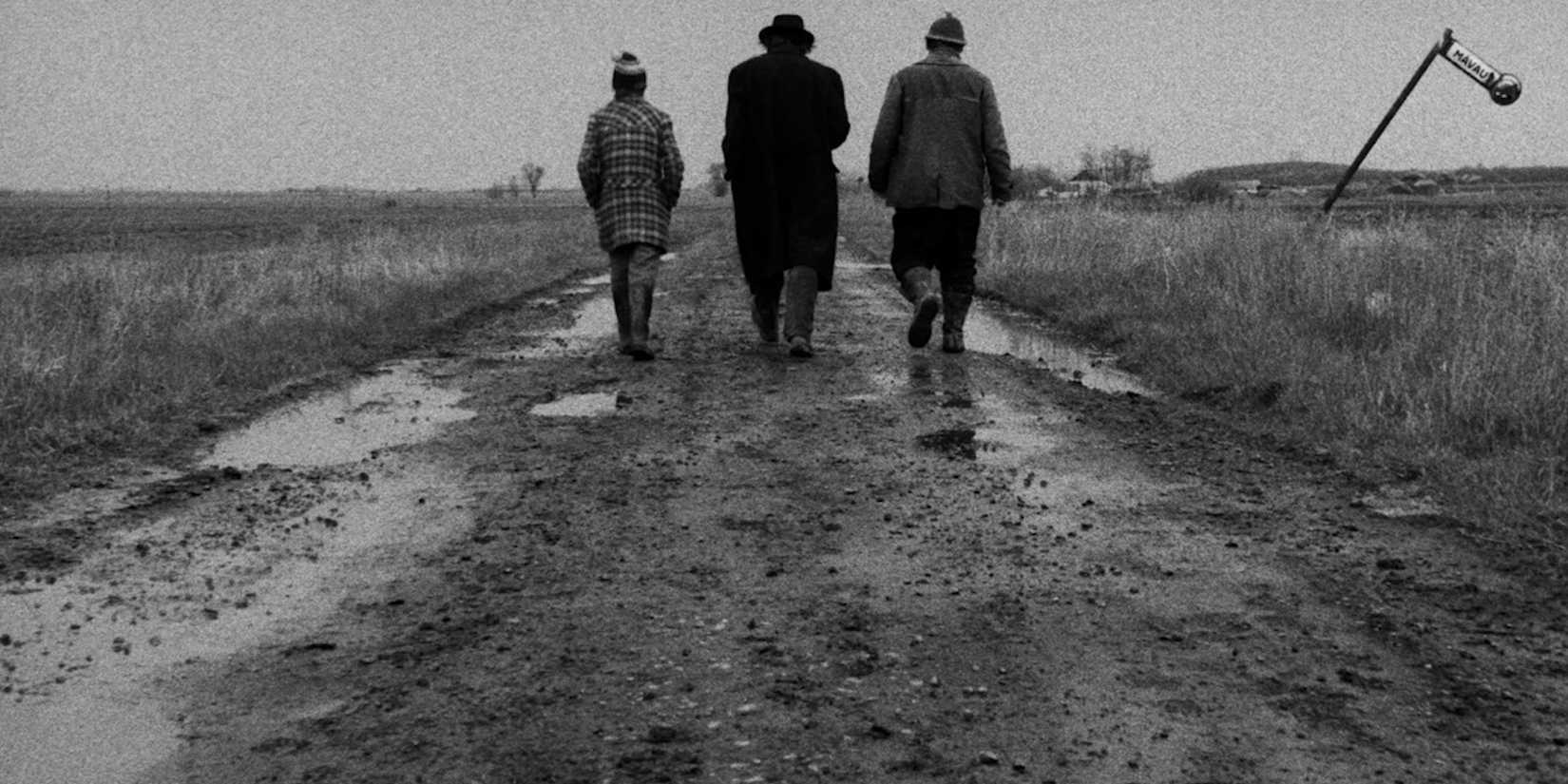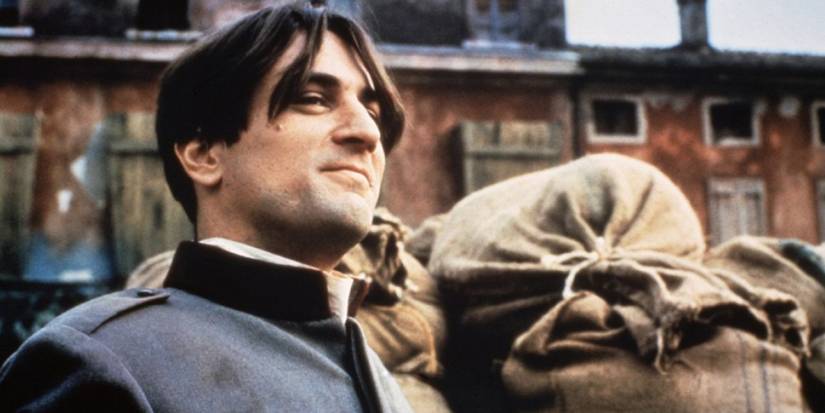
10 Most Disturbing Epic Movies of All Time, Ranked
Most horror movies aim to disturb, and most horror movies keep things fairly succinct on a runtime front, with work of horror being over two hours happening fairly infrequently (just look at all the discussion around Terrifier 2 daring to be 138 minutes long). A few horror films have gone longer, though, basically achieving the runtime of an epic, but also, a movie doesn’t have to belong to the horror genre to feel disturbing, by any means.
Of the following movies, all exceed three hours in length, all are disturbing, but only one is a true “horror” movie in the traditional sense. It’s emotionally taxing to watch something that’s both confronting and lengthy, but most of these are genuinely good movies if you’ve got a strong enough stomach and/or are sufficiently prepared. Also, they’re not necessarily ranked below in terms of quality, but more so starting with the fairly disturbing and ending with the most alarming.
10
‘Heaven’s Gate’ (1980)
There’s a level of infamy attached to Heaven’s Gate, mainly owing to its production and initial critical reception, but it’s really not as bad as you might’ve been led to believe. It’s not as great as the film Michael Cimino made a couple of years earlier (The Deer Hunter), but it’s even more ambitious, and, like that Vietnam War epic, it’s not afraid to push some boundaries and prove unsettling.
It’s a movie with many characters and moving parts, largely being about a dispute over land that builds in scope and becomes a class war, with a focus on revolution, societal unrest, and some other stuff you might expect to see in a Western. As mentioned before, Heaven’s Gate is undeniably ambitious, maybe even being overstuffed, but it has a certain power due to how raw and uncompromising it is.
9
‘Kwaidan’ (1964)
The reason Kwaidan reaches a runtime of epic proportions (standing as one of those exceptionally rare horror movies over three hours long) is that it’s an anthology film, and each story is given a decent amount of time (about 40 to 50 minutes each). There are four segments in all, and they’re all based on old Japanese folk tales, meaning Kwaidan consistently has a historical setting – or historical settings – and feels a bit like a mash-up of a samurai film and a folk horror one.
Given its age, Kwaidan might not quite shock the same way more modern-day works of horror might, but there’s still something unsettling about certain sequences found here.
It’s consistently engaging, too, especially on a visual front, since Kwaidan is largely stunning to look at and visually distinct. Given its age, it might not quite shock the same way more modern-day works of horror might, but there’s still something unsettling about certain sequences found here, and maybe the fact it’s all inspired by older stories gives the overall film a timeless sort of appeal/feel.
8
‘Babylon’ (2022)
One of the most underrated or over-hated epic movies not just in recent memory, but of all time, Babylon hasn’t been misunderstood by everyone necessarily, but it has been misinterpreted by quite a few people who gave it a shot. But also, lots of people just didn’t seem willing to give it a shot at all, even though it was directed by Damien Chazelle, and it explores similar things to his more successful earlier movies, Whiplash and La La Land, just on a grander scale.
It also explores the creation of enduring entertainment, the pursuit of greatness, and the sacrifices that often get made in artistic fields with a good deal of gross-out humor and shocking moments, admittedly being more willing to provoke than Chazelle’s earlier films. But there is a purpose to the extreme moments here, and a good chunk of Babylon does prove moving and thought-provoking if you’re willing to engage with it, exhausting runtime and all. Sounds great, too. That’s not super relevant, but the score is immense; it feels wrong to talk about Babylon without gushing about the score, no matter how much that praise feels awkwardly tacked on.
7
‘Once Upon a Time in America’ (1984)
After a career mostly defined by making great-looking and epic Westerns, Sergio Leone turned his attention toward the gangster genre for what ended up being his final film: Once Upon a Time in America. It plays out across almost four hours, and explores one character in three stages of his life: childhood, his time as a young adult, and then old age, handled without strictly chronological storytelling, too.
Even by the standards of a gangster film, Once Upon a Time in America is dark and brutal, as even though it’s something of a tragedy, the main characters are largely horrible people, inflicting misery on others and eventually becoming miserable themselves. That being said, the way it’s handled ultimately makes it engrossing, and Once Upon a Time in America is hard to fault on a technical front as well, like in terms of how it looks, sounds, and just feels.
6
‘Love Exposure’ (2008)
Love Exposure wants to be every genre, everywhere, and all at once, but did so 14 years before that other movie about doing Everything Everywhere All at Once, and it’s also close to 100 minutes longer. It’s a dramedy that’s also something of a coming-of-age movie, it explores religion and faith, it looks at some very taboo subjects, and then it spends a good chunk of its second half drifting between various action and crime sub-genres, like Yakuza and martial arts movies.
All the while, Love Exposure is also – as the title more than implies – about love, making it something of a romantic epic, but not in the ways most long movies about love feel like romantic epics. It’s almost hard to recommend, given how long and intentionally shocking it is, but Love Exposure does provide a ride if you’re willing to take one that’s all a bit out of control, and feels genuinely dangerous at a few points. Maybe they’re the best sort of roller-coasters, cinematic or otherwise. It’s a matter of perspective, or a matter of how much you like to feel pushed.
5
‘An Elephant Sitting Still’ (2018)
Maybe it’s a stretch to call An Elephant Sitting Still an epic in the traditional sense, given that it’s very intimate, small-scale in some ways, and also intentionally not a film that covers a great deal of time, but it’s got the runtime of an epic, standing at 234 minutes all up. It’s also undeniably ambitious, and it covers a good deal of ground in the sense that there are several main characters here whose paths only sometimes intersect.
In being a long film with a decently sized cast, all taking place across a short span of time, An Elephant Sitting Still is almost like a more disturbing and saddening version of Magnolia, complete with a more patient pace, too. But if you’re willing to give it a shot, it ends up being surprisingly engrossing, as few films have explored depression and despair in quite so blunt and affecting a fashion.
4
‘The Emigrants’ (1971)
Going for realism above all else, The Emigrants takes place around the middle of the 19th century, and has a story that involves a Swedish family attempting to make the journey from Sweden to America. They expect a better life there, and the film makes it plain to see the reasons they want to move, but then things approach a new level of confronting when the film becomes about the journey.
If it could be described as an adventure film (many miles are covered, after all), then The Emigrants might be the most hellish adventure movie ever made, making those helmed by Werner Herzog look mild in comparison. It has a part 2, though, and that one is arguably even more confronting. Speaking of that part 2…
3
‘The New Land’ (1972)
The New Land deals with the same main characters from The Emigrants, but is focused this time around on their attempts to make new lives for themselves in America, having survived the grueling journey by sea to their destination. There’s inevitably not as much traveling involved here, but it’s instead about the destination not being what they expected, becoming something of a grim Western, given when and where it takes place.
It’s confronting in ways you might not expect, and it says something about The New Land that you can get through the already disturbing The Emigrants thinking you’ve endured the most emotionally taxing part of the story, but then you get proven wrong, in time, as The New Land goes on. Both films, taken together, are absolutely remarkable as far as epics go, but you do have to be willing to endure a lot if you undertake watching all six and a half hours of this duology.
2
‘Satantango’ (1994)
Though a seven-hour-long movie is inevitably going to feel long, it still ends up being quite surprising just how long Satantango feels. This is a long movie that’s also one of the slowest-paced of all time, taking place in a small and despair-heavy village where no one is happy, and everyone just exists, wallowing in misery and dealing with a lifestyle that’s all downs with absolutely zero ups.
And if you watch Satantango, you inevitably feel all that misery every step of the way, with the depression of it all sometimes giving way to shocking moments, but most of the disturbing stuff here is disturbing in a quieter sort of way. It’s visually striking for sure, but an undeniable (and intentional) slog to get through. It’s hard to recommend, though it does accomplish what it seemed to set out to do, for whatever that’s worth.
1
‘1900’ (1976)
There are sights in 1900 that, once seen, cannot be unseen. The fact that it goes for more than five hours might make a rundown of all the disturbing things seen here feel a little more justified, as even though it’s a lot, it’s not like all of it’s crammed into a more normal runtime of two hours or less. So, the particularly confronting parts are spaced out, in other words.
Still, 1900 pulls no punches. There’s violence (and other gross things) done with animals, it’s got some intentionally extreme and uncomfortable sexual moments, and it’s also incredibly gruesome, highlighting the intense violence (sometimes against children) that came with all the political and societal unrest in Italy during the early 20th century. It’s an odd combination of technically impressive but also a bit too much, as nothing feels off-limits, which can be surprising if you throw it on expecting “another” Robert De Niro movie, as he’s the star of this one, but it’s so much more confronting than even the likes of Taxi Driver, Once Upon a Time in America, and Casino.
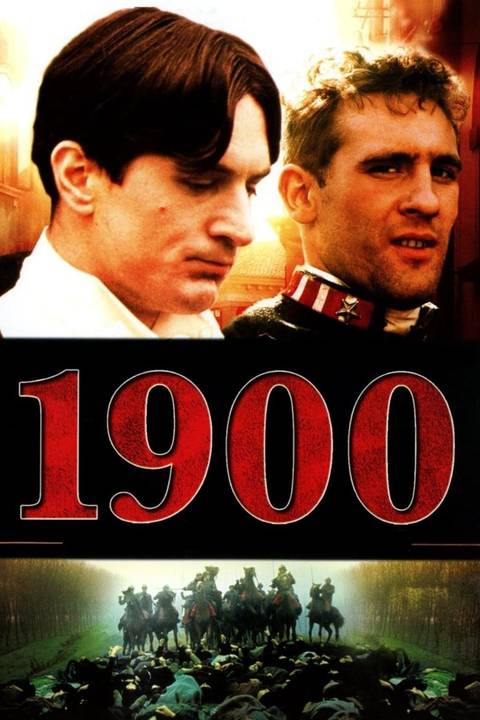
1900
- Release Date
-
October 7, 1977
- Runtime
-
316 minutes
- Director
-
Bernardo Bertolucci
- Writers
-
Giuseppe Bertolucci, Bernardo Bertolucci, Franco Arcalli

